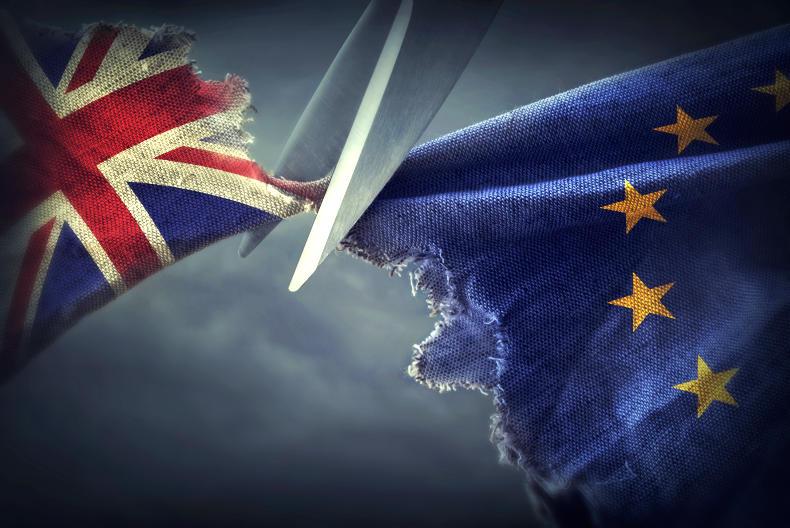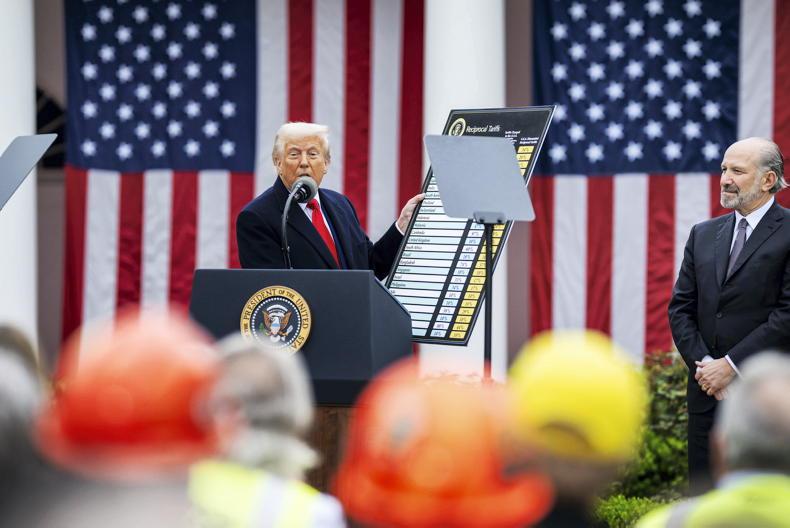The UK government’s proposals for technical solutions to the Irish border are ‘imaginative’ and ‘represent blue sky thinking’, a new report by the Northern Ireland Affairs Committee of the UK parliament has found.
It addresses the fundamental question of how the UK’s decision to leave the single market and customs union can be reconciled with avoiding a hard border between the Republic and Northern Ireland.
The UK government has repeatedly underlined that the free movement of people across the border will not be affected, and that no physical infrastructure will be put in place.
However, the committee was unable to identify any border solution currently in operation across the globe that would enable physical infrastructure to be avoided when rules and tariffs diverge.
Main recommendations
The committee concluded that the government’s proposals are imaginative, but that it will not have the time to implement a new, non-visible customs regime before withdrawal day.
It also rejected any proposals for customs checks which would result in a customs border down the Irish Sea. It said that this would create a costly barrier to trade with Northern Ireland’s largest market and would be incompatible with the spirit and intent of the Good Friday Agreement.
The committee found that additional infrastructure at the border would not only be politically objectional, but ineffective and unworkable.
Leaving the EU without a substantial agreement would have very negative consequences for avoiding a hard border, it said.
On the Common Travel Area, it recommended that the UK government should set out in detail how it proposes to manage immigration through internal controls, including whether there will be increased documentary checks to determine entitlement for residency and to access public services.
When it comes to co-operation on both sides of the border, it said the government should conduct an impact assessment for the border each time regulatory or tariff divergence from the EU is proposed.
Publishing the report, committee chair Dr Andrew Murrison MP said: "Brexit's success or otherwise hinges on the UK-Ireland border.”
Everyone agrees that the border after Brexit must look and feel as it does today.
“However, we have heard no evidence to suggest that there is currently a technical solution that would avoid infrastructure at the border.
“Furthermore, we have no detail on how checks on goods and people will be undertaken away from the border.
“It is now clear that a significant transition period is essential for the options in December's joint report to be worked through.
“It is equally clear that regulatory and tariff alignment will be required during transition to avoid any hardening of the border before a definitive low-friction solution can be determined,” he said.
Meanwhile this week, the UK prime minister Theresa May was told by EU officials that she and her government will have to reconsider Northern Ireland remaining in the customs union and the single market.
The UK government has so far failed to come up with a technical solution which would avoid a hard border and customs checks on the island of Ireland.
Read more
Editorial: Creed in the the UK, Glanbia price cut and higher sheep returns
Creed and Gove discuss bi-lateral trade
Cutting the CAP budget by 30% is ‘political lunacy’ – Hogan
The UK government’s proposals for technical solutions to the Irish border are ‘imaginative’ and ‘represent blue sky thinking’, a new report by the Northern Ireland Affairs Committee of the UK parliament has found.
It addresses the fundamental question of how the UK’s decision to leave the single market and customs union can be reconciled with avoiding a hard border between the Republic and Northern Ireland.
The UK government has repeatedly underlined that the free movement of people across the border will not be affected, and that no physical infrastructure will be put in place.
However, the committee was unable to identify any border solution currently in operation across the globe that would enable physical infrastructure to be avoided when rules and tariffs diverge.
Main recommendations
The committee concluded that the government’s proposals are imaginative, but that it will not have the time to implement a new, non-visible customs regime before withdrawal day.
It also rejected any proposals for customs checks which would result in a customs border down the Irish Sea. It said that this would create a costly barrier to trade with Northern Ireland’s largest market and would be incompatible with the spirit and intent of the Good Friday Agreement.
The committee found that additional infrastructure at the border would not only be politically objectional, but ineffective and unworkable.
Leaving the EU without a substantial agreement would have very negative consequences for avoiding a hard border, it said.
On the Common Travel Area, it recommended that the UK government should set out in detail how it proposes to manage immigration through internal controls, including whether there will be increased documentary checks to determine entitlement for residency and to access public services.
When it comes to co-operation on both sides of the border, it said the government should conduct an impact assessment for the border each time regulatory or tariff divergence from the EU is proposed.
Publishing the report, committee chair Dr Andrew Murrison MP said: "Brexit's success or otherwise hinges on the UK-Ireland border.”
Everyone agrees that the border after Brexit must look and feel as it does today.
“However, we have heard no evidence to suggest that there is currently a technical solution that would avoid infrastructure at the border.
“Furthermore, we have no detail on how checks on goods and people will be undertaken away from the border.
“It is now clear that a significant transition period is essential for the options in December's joint report to be worked through.
“It is equally clear that regulatory and tariff alignment will be required during transition to avoid any hardening of the border before a definitive low-friction solution can be determined,” he said.
Meanwhile this week, the UK prime minister Theresa May was told by EU officials that she and her government will have to reconsider Northern Ireland remaining in the customs union and the single market.
The UK government has so far failed to come up with a technical solution which would avoid a hard border and customs checks on the island of Ireland.
Read more
Editorial: Creed in the the UK, Glanbia price cut and higher sheep returns
Creed and Gove discuss bi-lateral trade
Cutting the CAP budget by 30% is ‘political lunacy’ – Hogan









SHARING OPTIONS